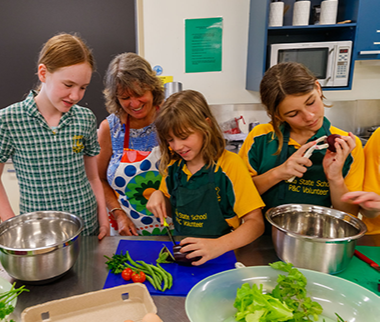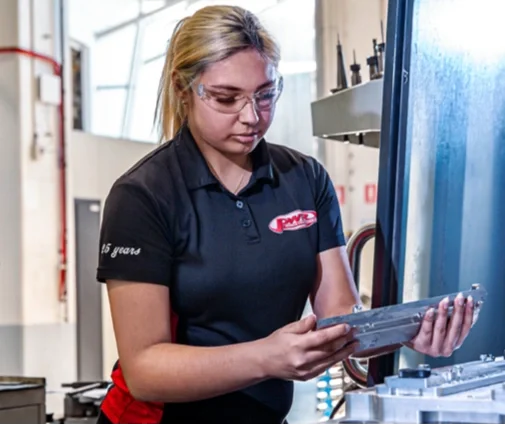Resources
Here you’ll find a carefully chosen collection of industry-to-career pathway insights, Queensland resource-recovery information, and the government’s Circular Economy framework—all designed to turn good intentions into measurable change.
Right now the average age of apprentices and trainees has climbed from 16 to 24 years—eight years of talent and energy left waiting. The career-pathway resources here help schools close that gap by connecting students with real opportunities sooner.
These public resources are just the beginning. For schools who choose to join the Climate Action Schools community, an even richer layer of member-only tools, guides and step-by-step frameworks awaits. Think of it as a shared toolkit for courageous changemakers: practical, proven and alive with ideas to help your students—and our planet—thrive.
Pathways to Sustainability in Industry
Explore the pathways that students can take into sustainability-focused careers across industry. From Environmental, Social and Governance (ESG) roles to the Circular Economy, Resource Recovery, and broader Sustainability fields, these pathways open doors to meaningful, future-proof jobs. Each one highlights how the skills students learn today — problem-solving, innovation, and ethical leadership — can grow into careers that shape thriving businesses, stronger communities, and a healthier planet.
Australia’s National Circular Economy Framework
Explore Australia’s blueprint for a thriving circular economy. This national framework sets out the vision and key actions for reducing waste, boosting resource recovery and creating long-term environmental and economic value. A valuable reference for schools seeking to connect classroom learning with real-world sustainability goals.
Sustainability Skills Centre Classroom Resources
Curriculum-aligned tools designed to support teaching and learning inside the Sustainability Skills Centre (SSC). These resources help you bring functional sustainability, waste auditing, and circular-economy concepts directly into your classroom.
Queensland’s Circular Economy & Waste-Reduction Vision
Discover how Queensland is reshaping the way we use—and reuse—resources. This state-wide framework outlines the path to a circular economy: reducing waste, designing out landfill and keeping materials in use for longer. It also highlights funding opportunities and grants to help schools kick-start projects and turn everyday actions into measurable impact.
ASPIRE – From Waste to Worth
ASPIRE connects schools, businesses and communities to recover resources and give materials a second life. It’s a simple way to save costs, spark new ideas and show how a circular economy can flourish when we work together.
Manufacturing Skills Queensland - Manufacturing Matters
Choose your pathway into the exciting world of manufacturing.
Manufacturing is a dynamic and innovative industry that offers endless opportunities for growth and success. From cutting-edge technology to sustainable practices, this sector is at the forefront of shaping our future. Whether you’re a student, job seeker, or looking for a career change, manufacturing provides diverse pathways to exciting and rewarding careers.
Recycle Mate App – Your Pocket Recycling Guide
Make recycling simple and accurate with the free Recycle Mate app. Just snap a photo or type an item to learn exactly how and where it can be recycled in your area. A quick, reliable way for schools and families to reduce contamination and keep valuable materials in the circular economy.
Renewable Energy Career Pathways - Energy Skills Queensland
This handy guide maps out the fast-growing green energy and sustainability career pathways across Queensland. From renewable energy to resource recovery, it highlights the skills and training needed for the jobs of the future—helping schools inspire students to connect classroom learning with real-world opportunities.
Pathways to Hydrogen Jobs in Queensland
Find out more on emerging job roles and training pathways in the hydrogen economy across Queensland. It’s a useful snapshot for school students, teachers and career advisers seeking a clear visual guide to how learning STEM, technical trades and hydrogen-related competencies feed into real employment opportunities in the clean energy transition.
Queensland Waste Strategy 2025-2030 (Draft)
Queensland’s Waste Strategy 2025-2030 lays out bold, measurable targets to reduce waste, increase recycling, and drive the state toward a cleaner, circular economy. Perfect for schools aiming to align your sustainability plans with state goals — and to leverage policy momentum for meaningful change.
Turning Purpose into Profit: A Leader’s Blueprint for Sustainable Growth
This guide offers a clear, actionable pathway for businesses (and change agents) to align sustainability with profitability. It introduces the Impact Blueprint — five core principles to reframe mindset, mission, mapping, movement, and magnification — helping organisations embed circular economy thinking, ESG leadership, and regenerative business models.
The Sustainables Academy
A rich, free hub of STEAM-aligned curriculum, sustainability pathways, and educator support. The Sustainables Academy offers downloadable resources, pedagogy models, and school-wide frameworks to help classrooms become ecosystems of action, learning, and impact.
Master Composter Workbook – Brisbane
A practical guide to transforming organic waste into thriving ecosystems. Developed through Brisbane City Council’s Master Composter Program, this resource supports schools and communities to apply circular economy principles, regenerate soil health, and build connected, sustainable futures where people and planet thrive together.
Transforming Queensland Manufacturing Strategy
This strategy document from the Queensland Government sets out a 10-year vision to modernise the state’s manufacturing sector. It highlights priorities like advanced materials, clean technologies, workforce development and supply chain resilience — aiming to position Queensland as a leader in sustainable, high-value production.
Queensland Skills Strategy (Good Jobs, Great Training 2024–2028)
This policy outlines Queensland’s five-year strategy for aligning vocational education and training with future job needs. It focuses on expanding access to subsidised and free TAFE, building skills for high-demand industries (including emerging green sectors), strengthening training outcomes, and investing in lifelong learning.















